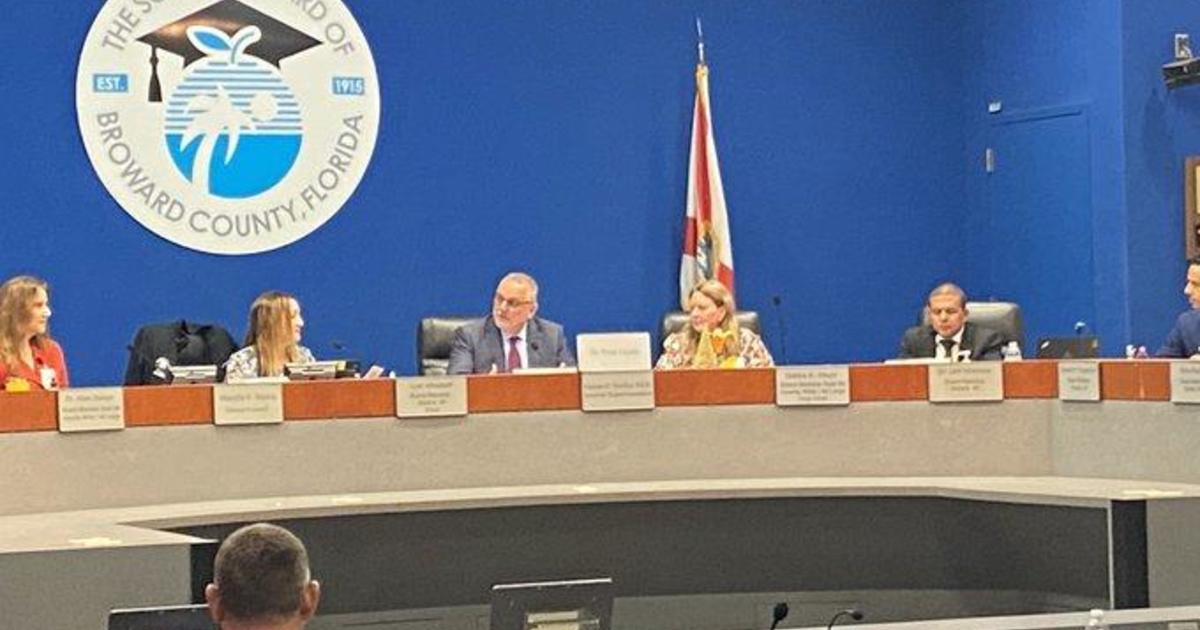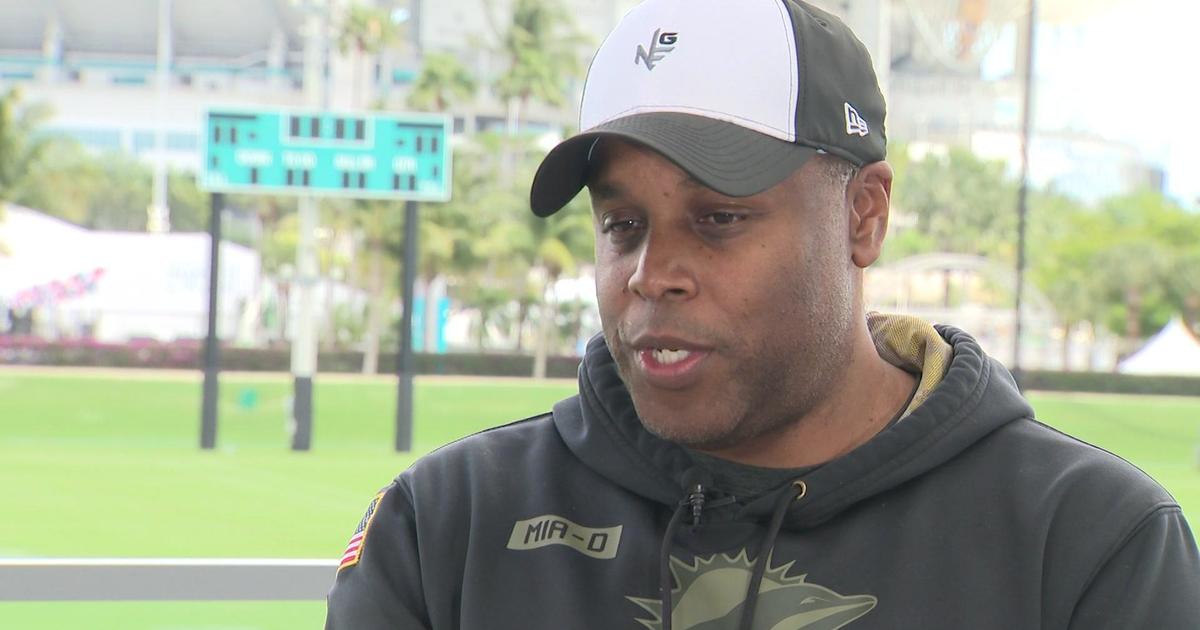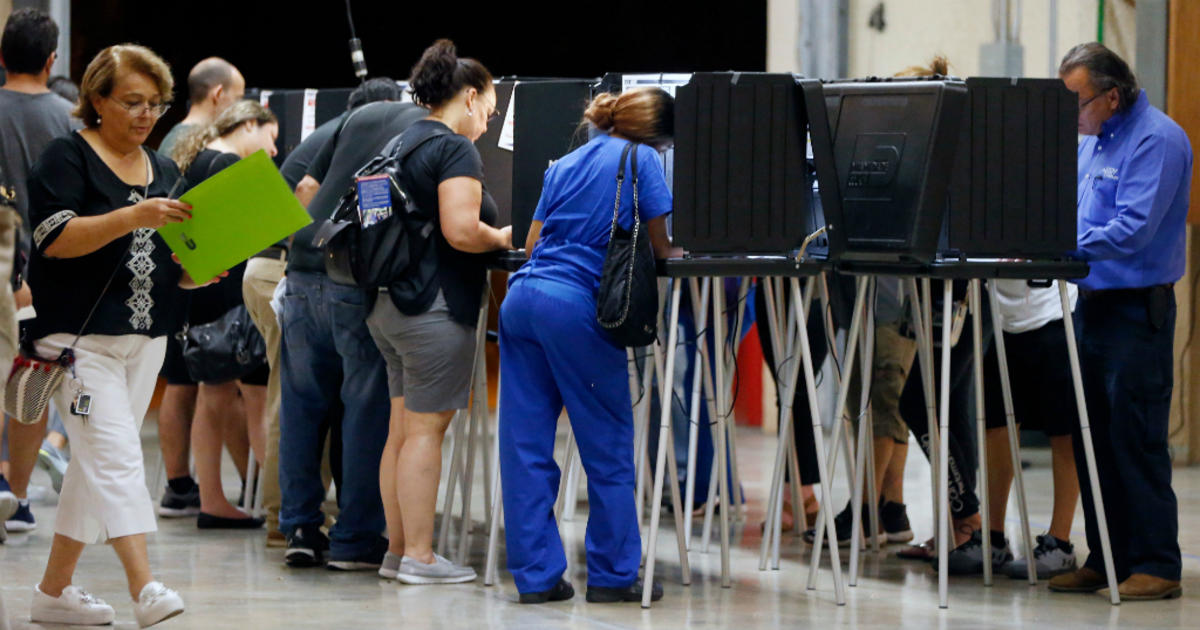I-Team: NHTSA Is Asleep At The Wheel
For more than 40 years the federal government has had an agency in place whose only mission is to protect American motorists from defective and dangerous cars and trucks.
But the CBS4 I-Team has uncovered questionable ties between those supposed government watchdogs and the automotive industry. It's a problem highlighted recently during the crisis involving sudden acceleration in Toyotas.
I-Team investigator Stephen Stock reports it's a problem that's now become the focus of Congressional hearings.
"Remember when you used to spin the car's wheels when you were a kid?" asked former sheriff's deputy Frank Visconi. "You know, like to burn rubber? That is what it was like."
Visconi was describing his experience with sudden acceleration in his Toyota truck back in 2006 and 2007.
The former Broward County sheriff's employee and 15 year police veteran said he's lucky to be alive after the latest incident with his Toyota.
"As soon as I hit the brakes my rear wheels started spinning." Visconi said.
View photos of Visconi's truck after the last accident: Photo 1, Photo 2
Instead of stopping, his 2007 Toyota Tacoma went careening over an embankment on I-65 on the way to Clarksville, Tennessee.
"So I was airborne for 40 feet," Visconi said, reliving the latest accident in his mind. "I landed on the roof and then rolled three more times (down the embankment.)"
It wasn't the first, but the fifth different time, Visconi experienced sudden acceleration in his Toyota. This last incident totaled his truck.
"I consider myself a lucky man," said Visconi. "Lucky. That's not even a good enough word. Someone was in the truck with me that day."
But when Visconi contacted the federal government through the National Highway Traffic Safety Administration, or NHTSA, to complain, he says his case fell on deaf ears.
NHTSA's response to other incidents has also come under scrutiny.
For instance, when hundreds of Ford F-150 trucks caught fire, NHTSA was extremely slow to react and to even search for a cause. The fires were later deemed caused by a faulty cruise control switch.
Those fires prompted one of the largest recalls in history but even weeks after the recall announcement many Ford F-150 owners still hadn't been told anything by NHTSA or Ford. And Ford, not NHTSA put out the recall.
And who can forget the hundreds of cases of motorists whose Firestone tires exploded on their Ford SUV's causing rollovers, accidents, serious injuries and deaths a decade ago.
Again, industry, not NHTSA pushed for recalls. And NHTSA, critics say, was extremely slow to respond to the crisis.
What's the unifying factor in all these cases?
The answer has already been mentioned in this article: the National Highway Traffic Safety Administration (NHTSA.) NHTSA is an agency established in 1970 through the National Highway Safety Act, signed into law by President Richard Nixon on December 31st, to "save lives, prevent injuries and reduce vehicle related crashes." In other words, NHTSA's mission is simple: to protect consumers.
But In all of the above major cases, plus many more in the last decade, NHTSA drew criticism for not warning the public sooner.
In fact, in each case the car manufacturer acted to rectify the issue, correct the problem or issue recalls before NHTSA formally acted.
"If you look at the Ford F-150 and the cruise control switch they (NHTSA) took 11 years from their first investigation to get the final recall," said Clarence Ditlow, Executive Director of the consumer advocate group Center for Auto Safety.
Ditlow says time and time again NHTSA has dropped the ball on consumer protection. He says one of the reasons for that is that NHTSA is too close to the auto industry to serve as an effective watchdog and protector of consumers.
"NHTSA is not doing its job," Ditlow told the CBS4 I-Team. "NHTSA doesn't have the resources. But they're not being a tough traffic cop and that's what they should be."
The CBS4 I-Team's investigation discovered at least a half dozen NHTSA officials who once worked for major automotive companies. And Ditlow provided more than a dozen names of former NHTSA officials who now work in automotive industry. Also a recent Washington Post report uncovered at least 33 former NHTSA workers who now work for the automotive industry as lawyers, consultants and lobbyists.
"Our concern is that they're taking the industry's word for it (a potential consumer problem). And it's too close a relationship," said Congressman Bart Stupak, Democrat from the 1st District of Michigan.
Representative Stupak chairs the subcommittee for Oversight and Investigations as part of the U.S. House Energy and Commerce Committee. It is a committee that oversees NHTSA.
Stupak believes NHTSA is currently in over its head, that it doesn't have the manpower or expertise to appropriately handle issues such as the sudden acceleration in Toyotas and other vehicles.
"There's no reason why they can't contract out and get some expertise to help them out," Stupak said. "But they won't."
"Why haven't they?" asked I-Team investigator Stephen Stock.
"Well, you know it's sort of like you're admitting you don't know what's wrong and you don't know what you're doing," Stupak said. "I mean, that's the impression we get."
Florida Republican Cliff Stearns, who is from Ocala, also sits on the House Energy and Commerce Committee. Stearns shares Stupak's concerns about NHTSA's lack of effectiveness as an advocate for consumer protection.
"What NHTSA failed to do was make these complaints public early and to do enough evaluation (on the Toyota sudden acceleration problems)," Stupak said.
Stearns said NHTSA's lack of consumer protection date back to the problems cited by the I-Team.
"I went through the firestone problem with the SUV's and things like that. And we thought that NHTSA wasn't on the ball then," said Stearns. "And they still aren't (on the ball)."
"I frankly think NHTSA has to get more technical people and less administrative people (to work in the agency and handle issues such as Toyota)," Stearns said.
One former NHTSA administrator admits there are serious problems within the agency right now.
Former administrator Joan Claybrook said that oftentimes representatives for consumer groups show up at NHTSA and Department of Transportation headquarters in Washington, D.C. on a monthly basis. Whereas automotive industry representatives are there at NHTSA headquarters every day.
"They (NHTSA workers) get used to the industry reps," Claybrook said. "They talk to them all the time. And so they are influenced by them."
Joan Claybrook served as NHTSA's administrator under President Jimmy Carter. She said major change began at the agency shortly after she left in 1981 when Ronald Reagan became President and began pushing for deregulation of the automotive industry.
"NHTSA has had its budget cut by a probably third since I left in 1981," Claybrook said.
She says President Reagan gutted the agency and that subsequent Presidents did nothing to restore its ability to do what it was supposed to do: protect the public.
Today, Claybrook said, that just 18 investigators work in the entire agency to oversee the safety of every vehicle on United States roads.
"That's just totally insufficient you can't possibly do your job," said Claybrook.
You can view a longer interview with Joan Claybrook by clicking here.
"The bottom line is the public suffers because vehicles aren't safe," said the Center for Auto Safety's Ditlow. "It's time to wake up and protect the public."
Thursday Congressman Bart Stupak held yet another hearing on Capitol Hill where his committee focused on Toyota's and NHTSA's response to the sudden acceleration problem.
Another part of the focus of this hearing was the revolving employment door at NHTSA as the I-Team reported here.
Congressman Stupak also wants to know why NHTSA did not warn the public sooner about the problem of sudden acceleration in Toyotas.
And the Michigan Democrat is seeking changes in NHTSA rules and procedures to put a stop to this revolving door to the automotive industry.
A current NHTSA spokeswoman declined our request for comment.



